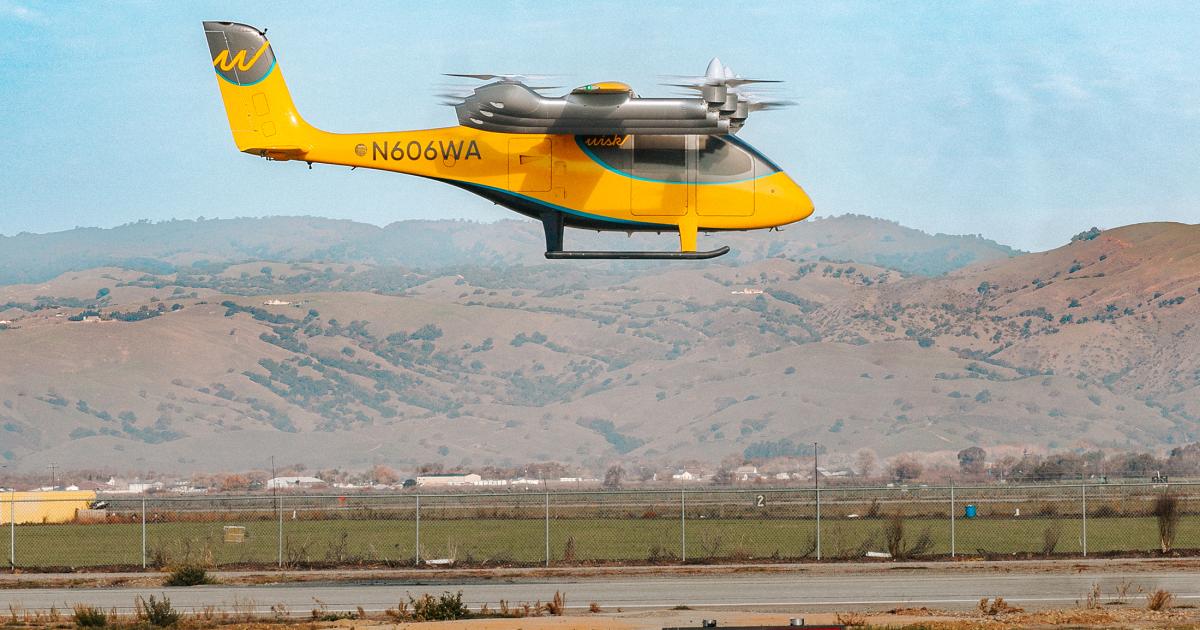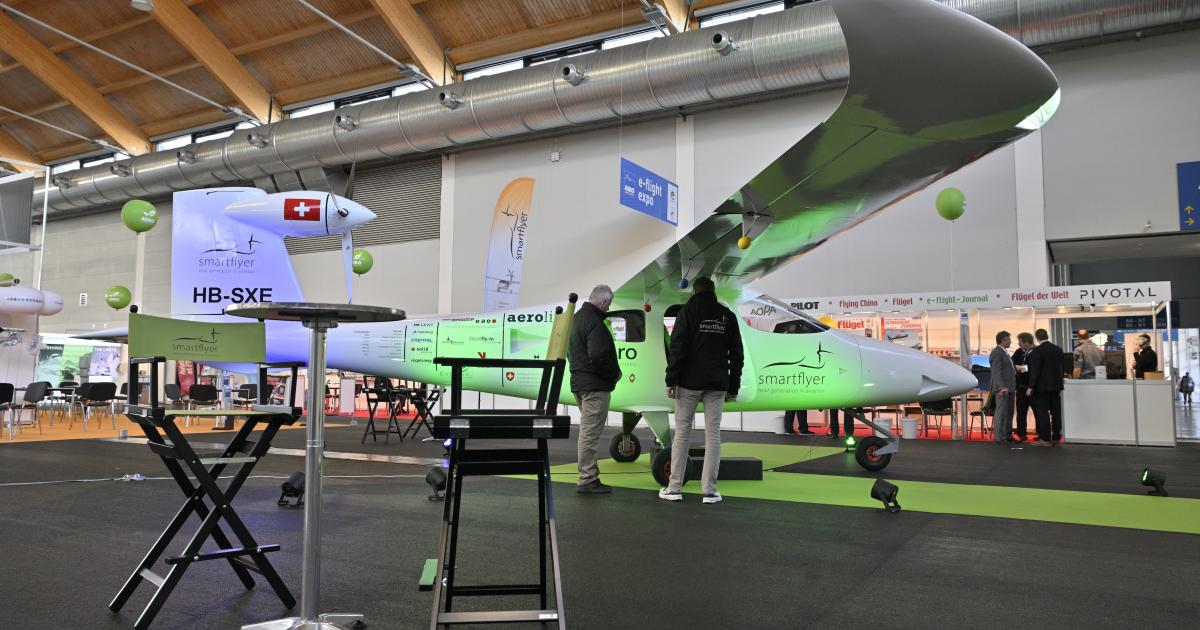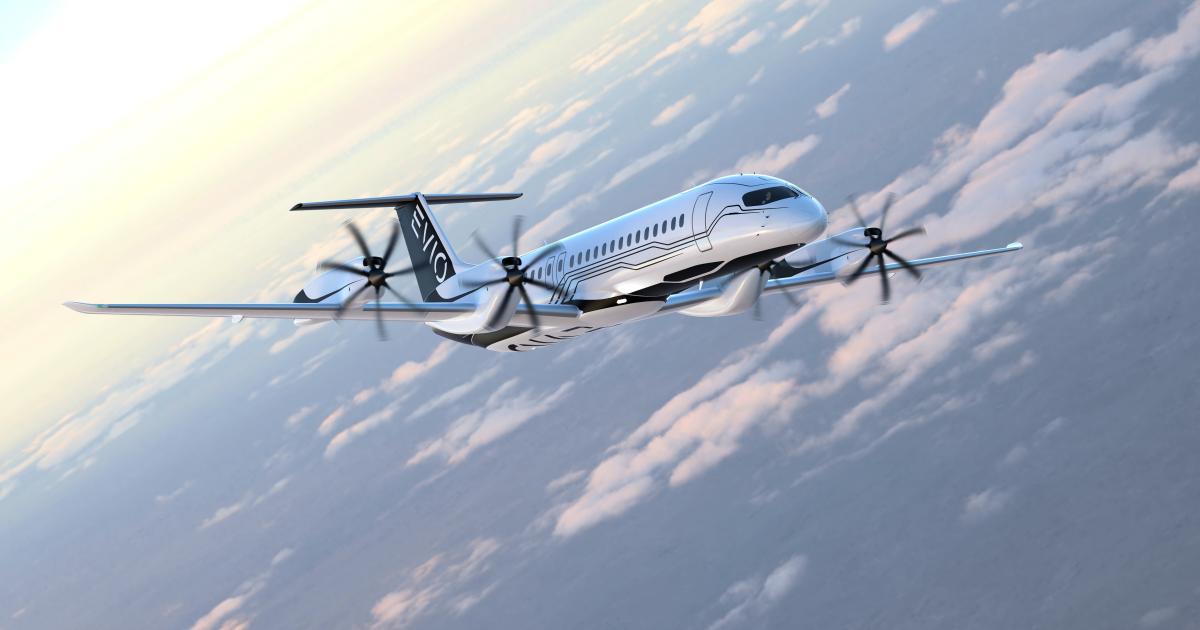Latest FutureFlight Videos
All Videos
FUTURE FLIGHT
Sign up for our free newsletter
News and analysis covering cutting-edge aviation technology and business models, including zero-carbon propulsion, eVTOL aircraft, automation and autonomy, and new infrastructure.
FutureFlight News
FutureFlight On The Radar
Study Projects Big Paybacks for Urban Air Mobility across Los Angeles Metropolis
The California State University at Long Beach investigated the social and economic impact of developing a 20-vertiport network for eVTOL aircraft.
FutureFlight
China's TCab Tech Completes Initial Flight Testing of E20 eVTOL Aircraft
Four months of testing were conducted with the first full-scale prototype at Dongyang Hengdian General Airport in Zhejiang Province.

FutureFlight
Volocopter Makes the Case For eVTOL Air Services With Roadshow In U.S. Market
The German eVTOL air taxi developer has been showing off its 2X prototype in a series of flight demonstrations across the United States.

FutureFlight
C-600 Large UAV Completes Flight Test in Scotland's Sustainable Aviation Test Environment
ARC Aerosystems says its C-600 VTOL drone is the largest in Europe with a 26-foot wingspan and a payload of 220 pounds.

FutureFlight
Lyte Aviation Starts Use Case Study for SkyBus Regional Air Services in Europe
The VTOL commuter aircraft developer wants to show how regions like Twente in the Netherlands could enjoy far better downtown access to major cities like Paris.

FutureFlight
Early Dufour Aero2 Hybrid-Electric VTOL Drone Customers Start Trial Operations
EASA's recent relaxation of its Specific Assurance and Integrity Level standards has cleared the way for early trial operations in Scandinavia and the U.S.

FutureFlight
Beta’s Electric Airplane Lands at Air Force Base in Florida
The six-seat, all-electric Alia airplane prototype has arrived at Duke Field, where the U.S. Air Force will use it for experimentation and training.

FutureFlight
FutureFlight Weekly News Roundup
FutureFlight.aero's Weekly Advanced Air Mobility News Roundup

FutureFlight On The Radar
UK Regulator Calls for More Work on eVTOL Aircraft Downwash Operational Safety
The Civil Aviation Authority this month published initial findings from a study about the effects on eVTOL aircraft operations of downwash, which is the column of downward-accelerated air generated by rotors or other propulsors.
FutureFlight
Archer's Midnight eVTOL Prototype Aircraft Makes First Flight
The company started flying the smaller Maker technology demonstrator two years ago and is now testing the four-passenger model.

FutureFlight
Logistics Group N2 Signs Sales Agreement for Moya's Autonomous Utility eVTOL Aircraft
The Brazilian start-up expects its high-capacity drone to be used for applications including cargo deliveries and crop spraying from 2026.

FutureFlight
HeliKorea Orders 20 Overair Butterfly eVTOL Aircraft
The California-based eVTOL developer also announced partnerships with Korean police and a local infrastructure developer.

FutureFlight
Federal Securities Lawsuit Against Archer Aviation Dismissed
The plaintiff in a federal securities lawsuit filed against Archer Aviation in September has voluntarily moved to dismiss the case.

FutureFlight
Japanese Government Backs SkyDrive's eVTOL Aircraft Development
Japan's Ministry of Economy, Trade, and Industry has awarded SkyDrive 12.4 billion yen ($82.7 million) for the development of its three-seat eVTOL aircraft.

FutureFlight
Supernal Teams with Mecaer and Hyundai To Develop eVTOL Aircraft Landing Gear
The partners signed a collaboration agreement during the Seoul ADEX air show in South Korea.

FutureFlight
Wisk Reports Generation 6 Autonomous eVTOL Aircraft is On Track For Flight Testing in 2024
When Boeing's advanced air mobility subsidiary starts flying the latest version of its eVTOL vehicle, it will build on the more than 1,600 flight hours logged so far by earlier models.

FutureFlight
Bombardier's EcoJet Probes the Fuel-saving Potential For a Blended-Wing-Body Business Jet
Some technologies from the green aviation project could be incorporated into existing Challenger and Global aircraft.

FutureFlight
Korean Partnerships with eVTOL Aircraft Developers Boost Country's Plans for Advanced Air Mobility
Korean Air has signaled an intent to be directly involved in eVTOL air services with the resort island of Jeju, which is eager to use the new aircraft to help achieve its zero-carbon objectives.

FutureFlight
Business Aviation Group EMC Jet to Market Lilium's Pioneer Edition eVTOL Aircraft to U.S. Private Owners
The Houston-based aircraft management, charter and brokerage provider has agreed to buy five of the four-seat Pioneer Edition Lilium Jet on undisclosed terms.

FutureFlight
FutureFlight Weekly News Roundup
FutureFlight.aero's Weekly Advanced Air Mobility News Roundup










